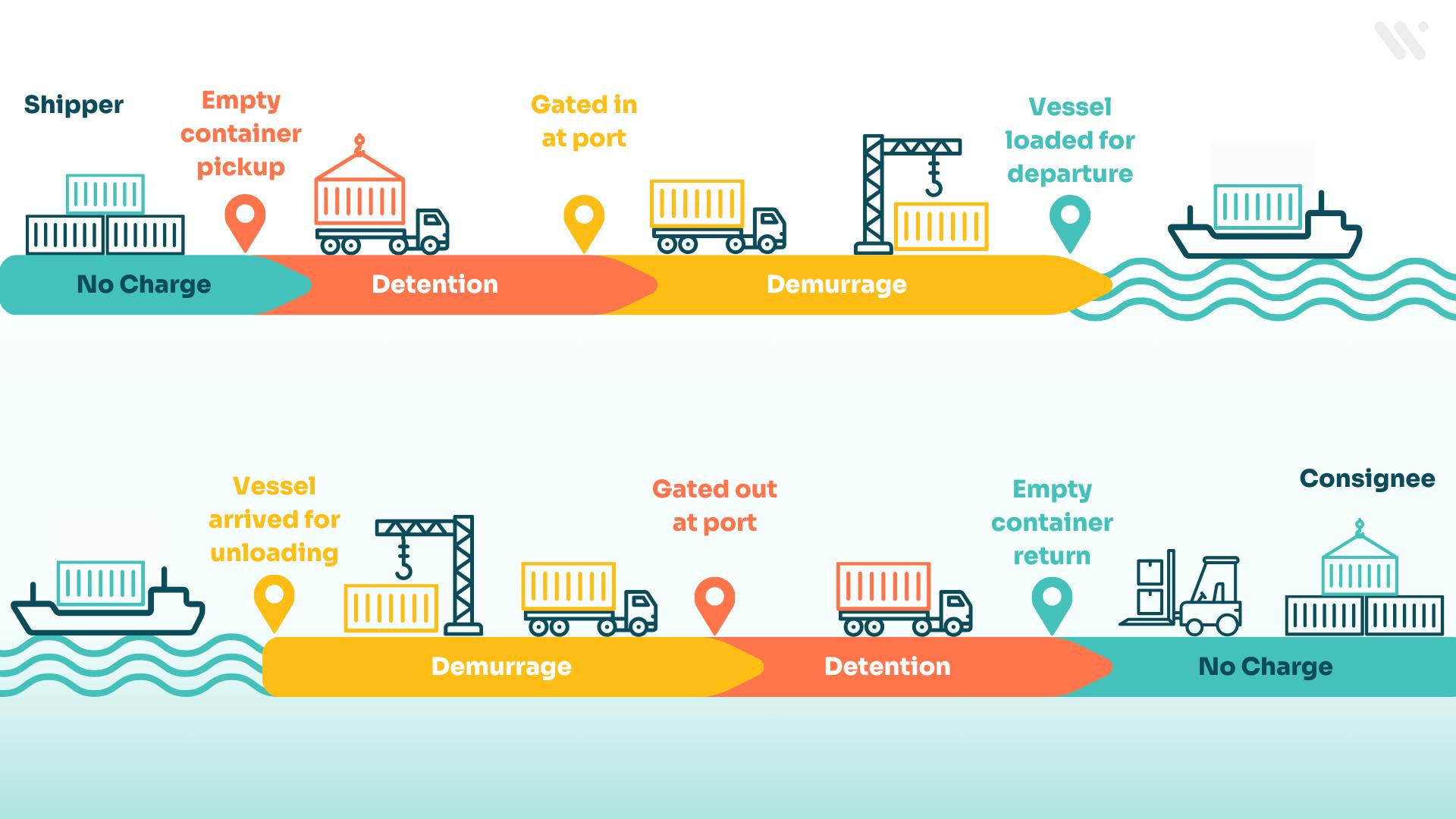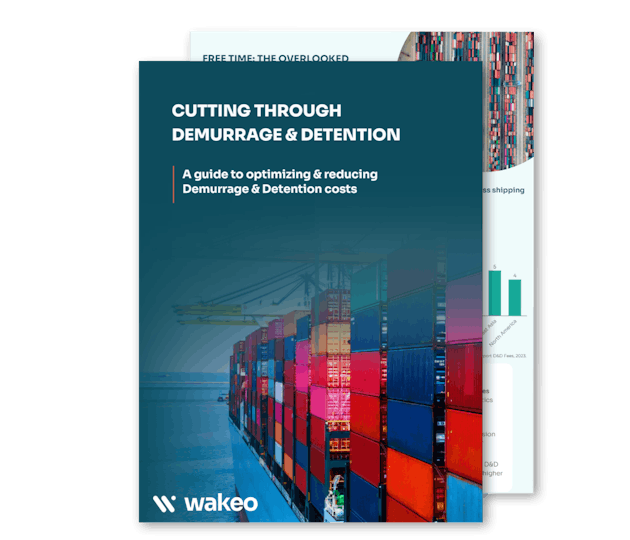Webinar replay | Global Supply Chain Architecture: Examining Red Sea’s Evolving Impact - Watch Now

3 Practical steps to reduce Demurrage & Detention costs
Demurrage and Detention (D&D) charges are a significant yet often underappreciated aspect of global logistics. These costs, incurred when containers overstay their free time at ports or are delayed in being returned, can quickly add up, resulting in substantial financial impacts.
For companies involved overseas transportation, understanding and effectively managing D&D charges is crucial not only for reducing unnecessary costs but also for optimizing supply chain efficiency.
Understanding Demurrage & Detention
Demurrage and Detention (D&D) are two critical terms in the logistics and shipping industry, specifically concerning ocean containers.
- Charges incurred when a container is not picked up from the port terminal within the allowed free time. Essentially, demurrage is the cost for using the container while it remains in the port after the free time has expired.
- Charges applied when a container is not returned to the port or depot after being picked up within the allotted free time. Detention fees are for the extended use of the container outside the port.
These charges are typically calculated based on the number of days the container is used beyond the free time period allowed. For example, if a container remains in the port for three days beyond the free time, demurrage charges will be incurred for those days. Similarly, if the container is not returned within the designated time frame after being picked up, detention charges will apply.

The Role of Visibility in Managing D&D Costs
Visibility into container movements and port operations is essential for managing D&D costs effectively. Enhanced visibility allows companies to track their containers in real-time, anticipate delays, and make informed decisions to optimize the use of free time. This proactive approach can significantly reduce the risk of incurring D&D charges.
Technology & Data Analytics
Advanced technology and data analytics play a crucial role in providing the visibility needed to manage D&D costs. Wakeo’s solutions offer real-time tracking, proactive notifications, and data-driven insights, enabling companies to stay ahead of potential delays and make timely decisions to avoid additional charges.
By integrating these visibility solutions into their supply chain operations, shippers can gain a comprehensive understanding of their logistics processes, identify bottlenecks, and take corrective actions before D&D charges accumulate. This approach not only helps in reducing costs but also enhances the overall performance and reliability of the supply chain.
